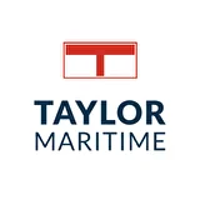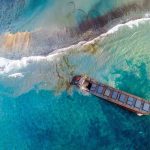Taylor Maritime Investments Limited, the specialist dry bulk shipping company, announced that as at 30 June 2022 its unaudited NAV was $1.79 per ordinary share, an increase of c.3% since 31 March 2022 and c.83% since IPO in late May 2021.
The Company is also pleased to declare an increased interim dividend in respect of the period to 30 June 2022 of 2 US cents per Ordinary Share, an increase of 14% per share and reflecting a new annualised dividend target for financial year 2022 of 8% on the IPO price.
The first quarterly factsheet of the new financial year is also now available on the Company’s website, www.taylormaritimeinvestments.com.
Key Highlights (all as at 30 June 2022)
The Market Value of the vessel portfolio was $542m, an increase of 10% or $50m versus the 31 March 2022 Market Value of $492m for the same portfolio of vessels
· The fleet’s average net time charter rate was c.$20,650 per day, with an average duration of eight months and average annualized unlevered gross cash yield of 26% based on 30 June 2022 Fair Market Values, generating an operating profit for the period of c.$30m
When combined with dividends paid during the quarter of 4.97 cents (comprising an interim dividend of 1.75 cents and a special interim dividend of 3.22 cents) and a c.33% reduction in Grindrod Shipping’s share price over the period (from $25.44 to $17.15), the net positive effect on unaudited NAV per ordinary share was c.3%
· During the quarter, the Company completed three previously announced vessel sales and announced an agreement to sell one more vessel which is expected to complete in the second quarter of the 2022 financial year, generating an IRR of 80% and MOIC of 1.9x
· As of 30 June 2022, the Company’s fleet comprised 28 vessels of which 27 were Handysize and one Supramax
· Five vessels in the fleet were fixed on time charters of approximately 12 months and the portion of the fleet on charters of 12 months or more increased to 25%, up from 18% from the previous quarter, in line with the Company’s intention to secure more earnings cover by fixing a greater portion of the fleet on longer-term charters at attractive yields through the summer and beyond
· The Company received a further dividend of $0.47 per share from Grindrod Shipping paid in June 2022 totalling $2.3m ($1.91 per share of dividends, or $6m, received in aggregate since stake acquisition representing a c.14% yield on the investment)
Post-Period Trading Update (since 30 June 2022)
· Since quarter end, two vessels commenced new time charter fixtures of more than 12 months duration
· This increased the portion of the fleet on time charters of 12 months or more to 32%
· The Company has covered 53% of remaining fleet days for the Financial Year ending 31 March 2023 at an average net time charter rate of $19,700 per day
· The value of second-hand ships has since risen from $19.5m for a ten year-old 32k dwt Handysize vessel at the end of the period to $20.5m according to Clarksons
Commenting on the trading update, Edward Buttery, Chief Executive Officer, said:
“The first year’s exceptional financial results have now been followed with our fifth consecutive quarter of NAV appreciation and a dividend increase. Despite macro uncertainties, fundamentals in our sector remain positive and we continue to extract attractive yields in a historically strong market. We locked in substantial levels of revenue across a greater proportion of the fleet supporting earnings visibility and certainty. We have unusual clarity over the supply side market fundamentals, particularly for our segment, which we expect to support a favourable market well into 2024. We constantly monitor the orderbook for indicators of market direction beyond that point and continue to assess accretive growth opportunities to enhance shareholder returns. We have been equally opportunistic about taking profit on vessels where we feel we are able to achieve higher than NAV prices with the chance of recycling the capital at more attractive levels.”
Handysize bulk market outlook
Supply side constraints continue to provide support for both rates and vessel values and are expected to persist well into 2024. The Handysize orderbook is currently 5.6%, the lowest of all dry bulk segments, while the overall dry bulk orderbook stands at 7.1%. This is the result of various factors including newbuild price inflation (Clarksons bulkcarrier newbuilding price index has climbed c.37% since December 2020), orders in other segments filling yards and ongoing uncertainty around future ship technologies. The Handysize orderbook has a staggered delivery profile over the next three years with 1.4% delivering in 2022, 2.7% in 2023 and 1.6% from 2024 onwards (Source: Clarksons).
Minor bulk demand growth remains firm at 2.1% in 2022 (and in line with supply growth of 2.2%) despite increasing inflationary pressures, China Covid restrictions and the ongoing Russia-Ukraine war. With 8.6% of the global fleet over 25 years old and a further 0.6% turning 25 in 2022, research analysts expect older, less efficient tonnage to be removed and forecast the Handysize fleet to shrink by 2.2% net in 2023 against minor bulk demand growth of 2.7% – an attractive spread. This compounds the 2021 spread of 5.4% demand growth against 2.8% supply growth (Source: Clarksons).
June and July saw some softening from previous annual highs in terms of rates owing to a poor grain season in the Atlantic and geopolitical factors with food security concerns resulting in a reduction in grain released for export causing the market to take a breather. We are now seeing a strong upswing in fertiliser volumes and expect to see an increase in grain shipments in the latter half of the quarter. This may be bolstered in the short to medium term by the recent Russia/Ukraine grain agreement and, whatever the case, we maintain a positive outlook for the remainder of the year.
Asset values increased during the quarter with Clarkson’s benchmark for a ten year old 32k dwt built Handysize rising to $19.5m (and to $20.5m since the quarter end). When compared to the same period last year, asset values have risen c.42%. With the Handysize orderbook at multi-decade lows, a tightening supply outlook and steady minor bulk demand growth, we believe there is further upside to second-hand asset values.
Financing
The RCF was $140m drawn at the end of the quarter. The current intention is to repay drawn funds from pending vessel sales and future operating cashflow.
ESG
Sustainability is at the heart of the way the Company is managed, and the profile and management of the fleet is integral to this. TMI’s inaugural set of ESG disclosures was published in the Company’s first Annual Report, highlighting progress to date and actions taken to meet near term carbon intensity targets. The ESG & Engagement Committee of TMI’s Board continues to oversee the Group’s ESG approach.
TMI is committed to achieving a long-term target of running a fleet comprising only zero-emission vessels by 2050, and to cross industry efforts to promote and achieve that target. Substantial technological advances are a key element of this for the broader shipping industry, but TMI has clearly defined near-term initiatives with incremental progress made so far. TMI has an ongoing, comprehensive programme to improve vessel energy efficiency and lower carbon intensity across the fleet. During the period, three vessels were fitted with energy saving devices including boss-cap fins, high performance paints, pre-swirl ducts and fuel efficiency monitoring systems. From a marine biodiversity perspective, two further vessels were installed with Ballast Water Management Systems during the period, bringing the fleet total to 75%. 93% will be fitted by the end of 2022, and two vessels to be fitted in 2023.
TMI has successfully implemented plastic reduction initiatives across the fleet, including the phasing out of single-use plastic onboard and the use of the data app EYESEA to map ocean plastic pollution. TMI remains committed to the safety and wellbeing of seafarers and recently contributed to the International Radio Medical Centre (“CIRM”), a free medical advice service offered to all seafarers onboard TMI vessels. With the recent events in Ukraine, TMI has taken measures to support the welfare of both the seafarers and their families affected by the conflict. TMI has contributed to the Seafarers International Relief Fund, as well as an organisation working to supply aid to those affected by the conflict in Ukraine.
The Company is, in connection with the long-term emissions goals mentioned above, a signatory to the Getting to Zero Coalition’s Call to Action for Shipping Decarbonisation. The Company’s investment and ESG strategy is aligned with specified UN Sustainable Development Goals.
Source: Hellenic Shipping News






